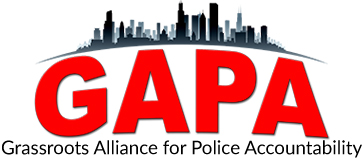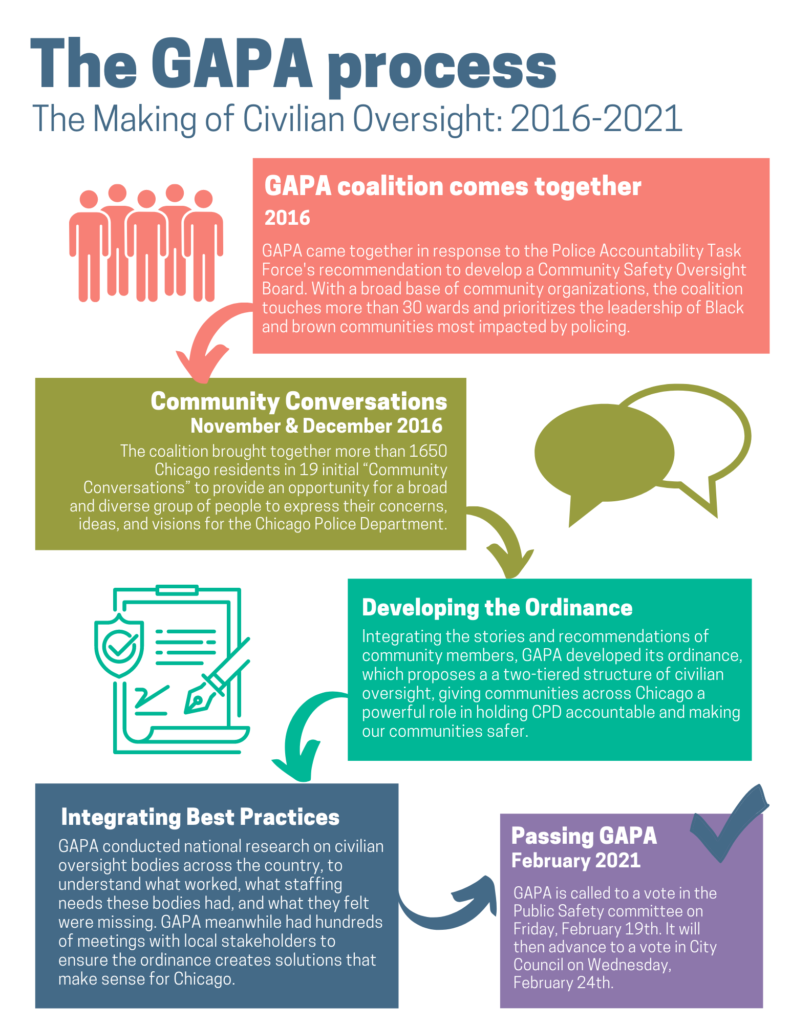About GAPA’s Community Conversations
In November and December 2016, GAPA organizations brought together more than 1650 residents in 19 “Community Conversations” in neighborhoods across the city to provide an opportunity for a broad and diverse group of Chicagoans to express their concerns about the Chicago Police Department. Participants generated nearly 300 different suggestions. GAPA’s Community Conversation Report highlights the key themes that emerged and the ideas that were repeated most frequently in many different communities. Over the next several months, GAPA groups will continue to meet, dig more deeply into the issues that have been identified, and the ideas that have been generated, prioritize them, and then work to develop a reform agenda and an action plan.
The community conversations required weeks of planning. Each GAPA organization created a steering committee made up of 10-20 community leaders. The steering committees met regularly to learn, analyze, and plan. These members also met citywide to allow idea-sharing across communities.
Community conversations were held across the city: six Community Conversations on the Southeast Side, six on the Southwest Side, three on the West Side, three on the North Side and one on the Northwest Side.
The community conversations began with an educational component in which local leaders provided important background information on many issues about policing and police accountability. This provided a solid foundation for the rich conversations that followed.
The heart of each community conversation was a set of small group discussions, facilitated by community leaders, where participants talked about how they would like to see policing change in their communities. While the Community Conversations were full of pain, frustration and anger, there was a great deal of hope. Participants didn’t just suggest tweaks to police department policies and procedures, or small-scale reform for oversight and accountability systems. Rather, they talked about transformational change — fundamentally rethinking the role of the police officer, reimagining the way police officers interact and engage with residents, and restructuring the way the police department is governed in order to ensure that it embraces the values and priorities of the people it serves.
Collectively our Community Conversations generated almost 300 different suggestions about how to improve policing to create safer communities for all of Chicago’s residents.

